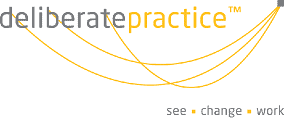By Diane Kane – 11 August 2021
Managing the employee experience on the way out
For most employees, there comes a point where the employee life cycle comes to an end, whether voluntary or involuntary. Your separation process must be just as strategic as your onboarding process and all forms part of an overall employee experience.
In my capacity as an outplacement service provider, I’m often asked by employers to reach out to exiting employees after experiencing the news of redundancy. The majority are reassured to have access to an experienced coach and outplacement expert.
However, time lags between their redundancy notice and the official business announcement can often mean the former employee has spent time struggling alone processing what feels like incomprehensible news, and unable to move beyond the loss. Sometimes they are also required to continue working out a notice period. This unfortunately adds to the weight of the expected ripple effects and turbulence from loss and an uncertain future, when what they really need is considerable support.
The reality of job loss
Job loss is hard – it can be hard on the pocket, pride, and mental outlook. People can ruminate on how their ex-employer managed the event, how under-valued and demoralising it was, and as a result, struggle to get their head in the game. With proper support, they can reset this mindset. Like any setbacks in life, it is not the event itself that determines the future, but the response.
Have you ever thrown a stone into a still pond and watched the effect it has when it hits the surface? It makes a splash. After the stone hits the water, ripples move through the water in ever-widening circles. With a big enough rock and some calm water, that ripple effect can go on until eventually the ripples disappear.
Job loss can affect your life as if it were a pond, sending ripples outside the initial impact of loss. Those ripples move through our lives, changing its course, or causing stress on our relationships, traditions, and our daily routines. When we lose our job, it can affect our whole pond and create secondary losses. In job loss, the ripple effect can affect how we approach things, the actions we take and the outcomes we experience. It is within all of us to take some control back through the ripples, but sometimes we need a little timely help to get back in the driver’s seat and control of the steering wheel.
Mitigating further disadvantage
How employers approach separation, can make all the difference to outcomes for those at risk of, or who are losing their jobs. Early transparency and communication of pending changes, empathy, and carefully timed coaching and outplacement can create an employee experience that helps employees transition well. It also helps your employer brand.
We all know the power of positive mindsets and beliefs on our success. Early career transition support, benefits both employees who may be losing their jobs and stressed out and overwhelmed managers who have to make these decisions and shed staff.
What we are really talking about here is a partnership so that the rippling aftereffects of redundancy don’t lead to further disadvantage, ignite long term unemployment, or erode organisational brand. One of the biggest challenges in unemployment is managing the emotions that job loss can trigger. Often the hit on the back pocket isn’t as traumatic as the hit on our sense of identity, provoking, vulnerability, humiliation, anger, self-pity, and plummeting self-belief. While very few people get a kick from losing their job, (even one they didn’t enjoy), being able to keep a positive mindset helps to get back to work sooner and it expands an ability to use the time in a way that sets the person up to one day look back on it with a measure of gratitude for what they gained from it. Trust me, I know. I once lost a job that I hated, so it took me by surprise to experience my ripples which included feelings of dread, failure, and reduced self-belief. However, I quickly found that with the right tribe to support me, I could learn some big lessons about myself and what I needed to do next.
The value of early intervention
I am sometimes asked to provide opt-in services that recognise the value of early intervention, either through one-on-one coaching or workshops to help individuals develop their career transition plan well in advance of their role becoming redundant. The goodwill generated from this approach goes a long way to lowering overall stress and anxiety levels for employees who will no longer have jobs and for those involved in managing the change, through to the remaining workforce, who have survived the restructure or change.
Some organisations are cautious about starting transition programs early, concerned about the effects on retention and productivity. However, my experience shows that starting the service early results in a healthy lift to employee engagement, productivity and reduced stress levels. This proactive approach calms people and sends out a strong employer brand message, demonstrating that you care about your employees’ ongoing careers.
The earlier employees have access to an experienced career coach to start their career plan and transition, the more motivated and productive they are. They also tend to transition into other roles more quickly and identify employment that resonates with their values and sweet fulfillment spot.
Career transition coaching benefits
Early intervention with a Career Transition Coach helps the employee to:
- Reframe and rebuild confidence and to recognise that job status is not an identify but an opportunity to grow in self-awareness, re-evaluate priorities and build resilience
- Extract every bit of learning from the experience, so they don’t get stuck ruminating over what could have been
- Unbundle transferable jobs and skills relevant to another workforce or to what may seem an unrelated job, and explore more career options
- Access market and industry insight so they can make informed decisions to diversify their skill sets and keep up with new technologies or market changes
- Focus on setting up for their ideal future and be intentional about where they place their attention – e.g., resume upgrades, recruitment contacts, invest in skill or knowledge development, especially if they are unsure and require help to reset their life compass
- Methodically tap into their network, including weak ties that open doors of opportunity
- Establish workday routines and create a job search plan with goals, actions, and accountability deadlines
- Stand guard on their energy and look for seeds that help to keep pressing on.
People leave organisations. Having a great process in place creates goodwill and boosts workplace morale. A respectful separation buys incredible brand loyalty and allows individuals to move on quickly. Who knows, you may end up working with that person again in the future, somewhere, some place, so it’s never overkill to invest in an employee’s exit from service in your organisation.
If you’d like to hear more about this, I’d love to chat with you.
Di Kane – Director Careers, deliberatepractice 0418119975



